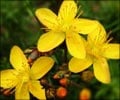A combination of Chinese herbs in use for more than 1,800 years reduced the gastrointestinal side effects of chemotherapy in mice, Yale University researchers have reported.
The formula used in the experiment consists of four herbs, called PHY906, and is based on a herbal recipe called Huang Qin Tang, used historically to treat nausea, vomiting and diarrhea."Chemotherapy causes great distress for millions of patients, but PHY-906 has multiple biologically active compounds which can act on multiple sources of discomfort," said Yung-Chi "Tommy" Cheng, Henry Bronson professor of pharmacology, co-director of the Yale Cancer Center's Developmental Therapeutics program and senior author of the paper.
Mice undergoing chemotherapy that were given PHY906 lost less weight and experienced more anti-tumor activity than mice not given the formula, the team reported.
The herbal formula reduced toxicity of the chemotherapy by multiple mechanisms, including the inhibiting inflammation and promoting the creation of new intestinal cells, the team reported. This cannot be accomplished by current drugs, which usually target only one mechanism.
"This combination of chemotherapy and herbs represents a marriage of Western and Eastern approaches to the treatment of cancer," Cheng said.
The study has been published August 18 in the journal Science Translational Medicine.
Advertisement












